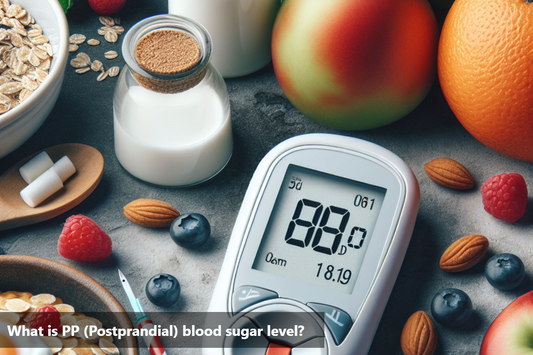Insulin is a hormone that plays a critical role in regulating blood sugar levels in the body. The process of insulin production is vital for maintaining optimal health, especially for individuals with diabetes. When insulin is produced by the pancreas, it acts as a key that unlocks the cells, allowing glucose from the bloodstream to enter and be used for energy. Without sufficient insulin production, glucose remains in the blood, leading to high blood sugar levels.
Managing blood sugar levels is crucial for overall well-being. Insulin production ensures that cells receive the necessary glucose for energy, supporting various bodily functions. This hormone also helps store excess glucose for future use, preventing sudden spikes in blood sugar levels.
Understanding the significance of insulin production is essential for individuals with diabetes. Proper production of insulin through healthy lifestyle choices, medication, and other treatments is vital for effectively managing the condition and reducing the risk of complications.
Insulin production is a finely tuned process that is fundamental to the body's ability to utilize glucose efficiently. By recognizing the importance of insulin and the role it plays in regulating blood sugar, individuals can make informed decisions to support their health and well-being.
The Role of Pancreas in Insulin Production
The pancreas plays a vital role in the production of insulin.
Insulin is produced by specialized cells in the pancreas known as beta cells. These beta cells are located in structures called the islets of Langerhans within the pancreas. When blood sugar levels rise after a meal, the beta cells spring into action.
These beta cells sense the increase in blood sugar and respond by releasing insulin into the bloodstream.
Insulin is a hormone that acts as a key to unlock the cells, allowing glucose from the blood to enter the cells where it can be used for energy production. This process helps in regulating blood sugar levels and preventing them from getting too high.
The beta cells constantly monitor the blood sugar levels and adjust the insulin production accordingly, ensuring that the body's energy needs are met.
-
Without the proper function of these beta cells, the production of insulin is disrupted, leading to conditions like diabetes where blood sugar levels can become dangerously high.
Understanding the function of these specialized beta cells in the pancreas provides valuable insights into the intricate process of insulin production and its significant role in maintaining overall health and well-being.
The Process of Insulin Production
Insulin production is a complex and fascinating process that plays a crucial role in regulating blood sugar levels and overall health. The synthesis of insulin primarily occurs within the beta cells of the pancreas, specifically in the islets of Langerhans.
Activation of Beta Cells: The process begins with the activation of beta cells in response to elevated blood glucose levels. When the levels rise after a meal, beta cells are signaled to start producing insulin.
Insulin Synthesis: Inside the beta cells, proinsulin, which is the inactive form of insulin, is produced. Proinsulin contains the A and B chains of insulin held together by a connecting peptide.
Cleavage of Proinsulin: Enzymes within the beta cells then cleave the connecting peptide from proinsulin, resulting in the formation of active insulin.
Release into the Bloodstream: Once insulin is synthesized, it is stored in vesicles within the beta cells until needed. When blood glucose levels increase, insulin is released into the bloodstream to facilitate glucose uptake by cells.
-
Regulation: The production of insulin is tightly regulated by various factors to ensure optimal blood sugar balance.
This intricate process highlights the remarkable efficiency of the human body in maintaining homeostasis and underscores the significance of insulin in our well-being.
Factors Affecting Insulin Production
The food we consume plays a crucial role in insulin production. A balanced diet rich in whole grains, fruits, vegetables, and lean proteins promotes healthy insulin levels. Consuming excessive sugary or processed foods can lead to spikes in blood sugar levels, impacting insulin production negatively.
Regular exercise is another key factor affecting insulin production. Physical activity helps regulate blood sugar levels, making the cells more sensitive to insulin. This sensitivity is essential for the effective utilization of insulin in the body.
Genetics also play a significant role in insulin production. Family history can predispose individuals to conditions like Type 2 diabetes, impacting the body's ability to produce and utilize insulin efficiently.
Moreover, lifestyle choices such as maintaining a healthy weight and managing stress levels can impact insulin production. Stress hormones can interfere with insulin function, highlighting the importance of stress management in overall health.
Being mindful of factors like diet, exercise, genetics, and lifestyle choices can positively influence insulin production and support optimal health.
The Mechanism of Insulin Production
The intricate process of insulin production involves the synthesis of proinsulin, its cleavage into active insulin and C-peptide, and packaging into secretory granules for release. Factors such as diet, exercise, and genetics can significantly impact the efficiency of insulin production, emphasizing the importance of a balanced lifestyle for optimal health.
Understanding the mechanisms behind insulin production sheds light on the significance of maintaining stable blood sugar levels for overall well-being. Proper insulin production is essential for preventing conditions like diabetes and metabolic disorders. By prioritizing factors that support optimal insulin secretion, individuals can promote better health outcomes and reduce the risk of associated complications.
Embracing a healthy lifestyle with balanced nutrition and regular physical activity can positively influence insulin production, highlighting the interconnectedness between lifestyle choices and metabolic health. Insulin production is a sophisticated biological process that underscores the body's intricate regulatory mechanisms and the critical role of hormonal balance in sustaining vitality and wellness.
This Blog post is an initiative by DiabeSmart, to provide accurate and Nutritionist / Doctor approved information related to Diabetes. DiabeSmart is India's first Food brand designed specifically for Diabetics, that has been clinically tested on Diabetics and Pre-Diabetics to deliver 55% - 70% lower Sugar spikes. DiabeSmart is part of Lo! Foods - India's leading brand for Everyday Functional Health foods.







